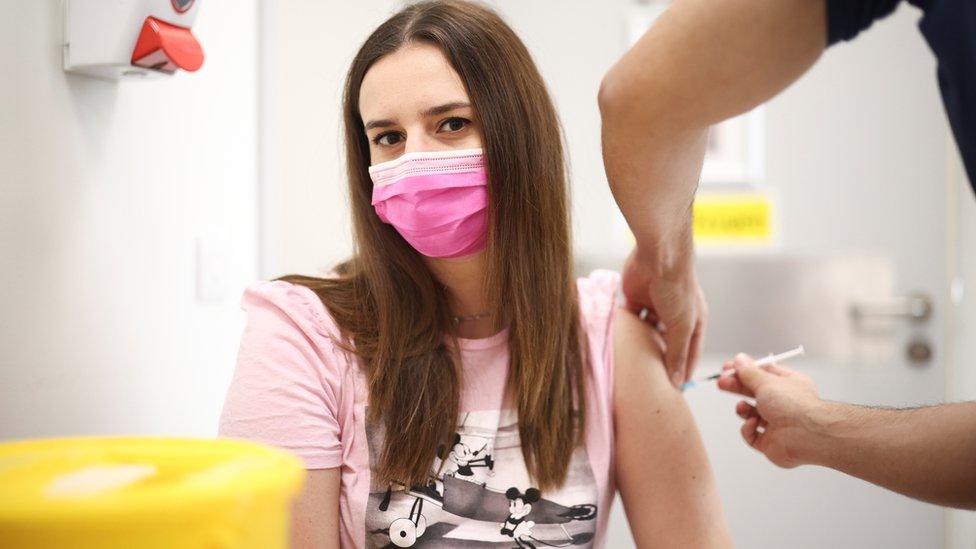Covid vaccine hesitancy: Misinformation 'spreads faster than virus'
- Published
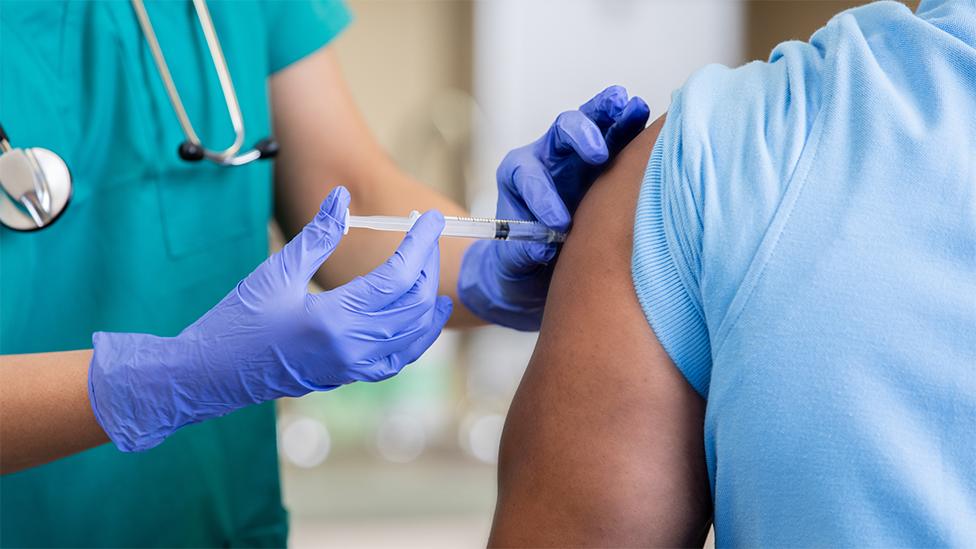
Covid vaccines are now open to most of the UK population, but some people - particularly young black people - are still reluctant to get a jab.
Black adults are the most likely to be hesitant and people aged 18-21 are least likely to have a jab, according to data from the Office for National Statistics (ONS).
BBC Radio 1Xtra's If You Don't Know podcast spoke to some people who said the reason for this was the spread of misinformation.
YouTube has removed more than 900,000 videos related to dangerous or misleading information about Covid since February 2020, according to statistics given to the podcast.
One person who was initially reluctant to have the vaccine because of rumours online is Grace.
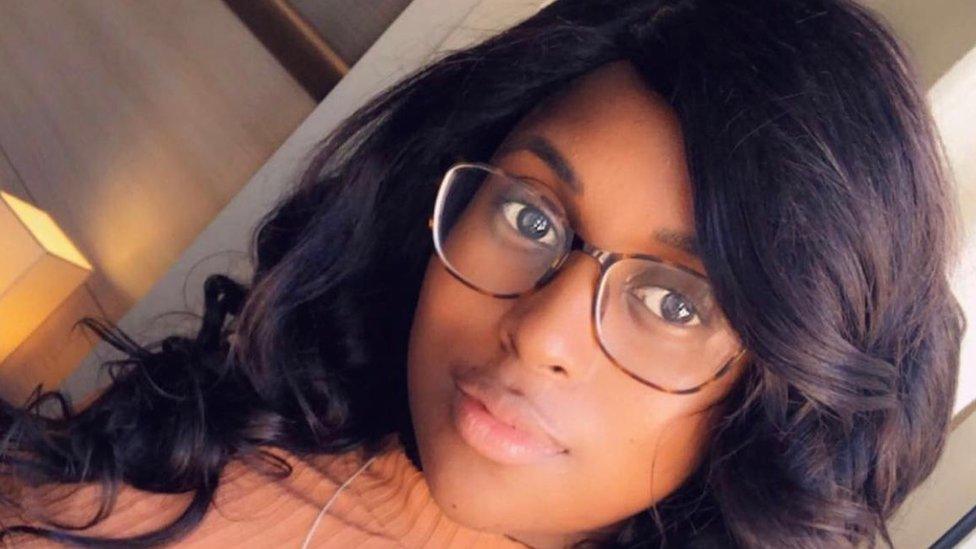
Grace, a mental health nurse, was hesitant to have a jab because of things she'd heard online
She's a mental health nurse for the NHS, which means she was offered the vaccine right at the start of the rollout.
"I didn't want it for the longest time," the 25-year-old from Milton Keynes tells the podcast.
"Social media was just moving so mad, telling me all the black people are going to be infertile, they're trying to kill us all off."
Not only is there no evidence that vaccines cause fertility problems in men or women, but experts say there's no realistic way they could.
Claims to the contrary on social media are false.
Despite being "really shocked" by those claims, Grace soon realised that a return to normal life wouldn't happen without having the vaccine - so she agreed to take it.
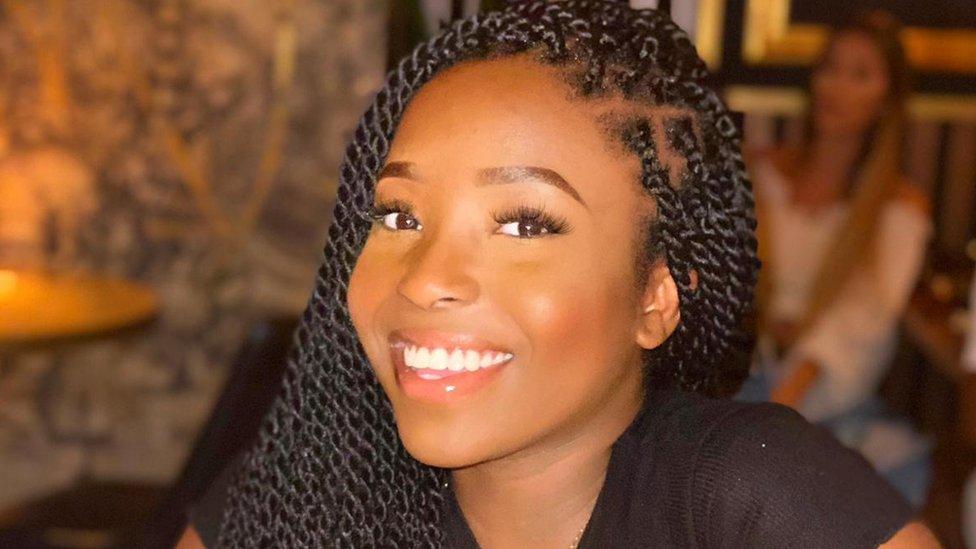
Sharnie has concerns around the speed of vaccine development
Sharnie Crooks is a student from London and has decided against booking a Covid jab in for the moment, "simply because it hasn't been around for long enough".
The 19-year-old is worried the speed that vaccines have been developed means we don't yet know about any potential long-term side effects of taking it.
"I personally feel as though the nation has been very much rushed into taking it and I'd like to wait for more research to just be carried out."
Speaking on the podcast, Dr Tosin Sotubo, a black doctor, says she's "had all kinds of conversations" about the vaccine and has heard concerns like Sharnie's.
"People are nervous that the vaccine is coming around too fast, wondering if we're experimenting with it, if we know the real side effects, and some have religious concerns."
Covid: Lies stopping BAME people getting vaccinated
Dr Tosin admits having to "pause and think" about the speed of vaccine development herself.
But she says people should realise "the research and foundation of the vaccine was in the works for many years" and governments around the world pumped money into developing a Covid jab, to help speed up the process.
"The vaccine didn't skip any steps, it had to pass the same safety regulations all other vaccines pass."
Checks continue to happen after approval to make sure there are no further side effects or long-term risks.
Another factor around hesitancy, she says, is the long-term differences in healthcare between white people and ethnic minorities, in things like maternal mortality rates.
Black women in the UK are much more likely to die from complications surrounding pregnancy and childbirth than white women, according to a 2019 report.
"When you see those disparities and black people are more affected in some cases, compared to their white counterparts, you have to question if we're doing enough," Dr Tosin says.
"We need to talk to the black community and educate them around the facts."
Vaccine hesitancy 'halved' among black people
She says at times it feels like "misinformation spreads faster than the virus", adding: "It's crazy how one message can go completely viral and that message becomes the 'truth'."
But she encourages people to take the jab: "You're taking the vaccine for everyone globally."


Follow Newsbeat on Instagram, external, Facebook, external, Twitter, external and YouTube, external.
Listen to Newsbeat live at 12:45 and 17:45 weekdays - or listen back here.
- Published2 April

- Published18 June 2021
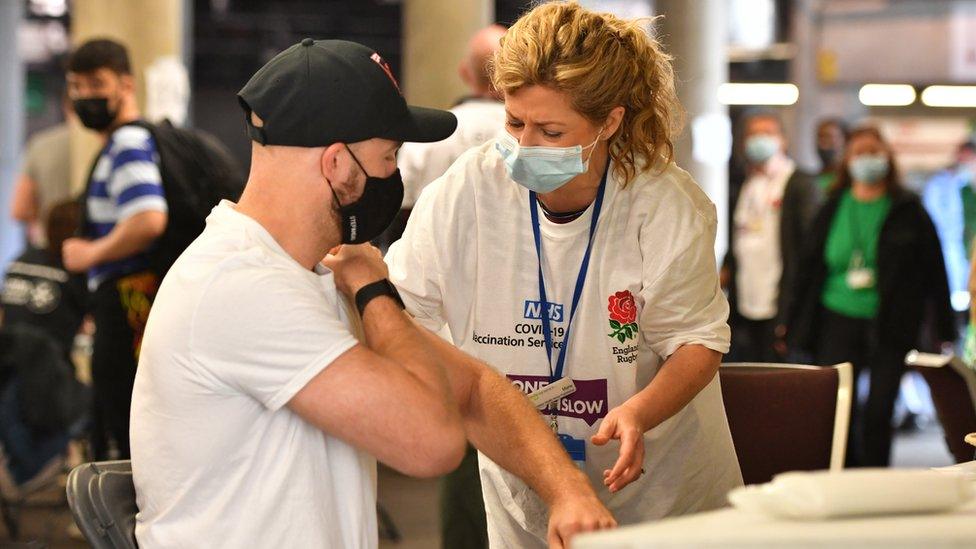
- Published5 November 2020
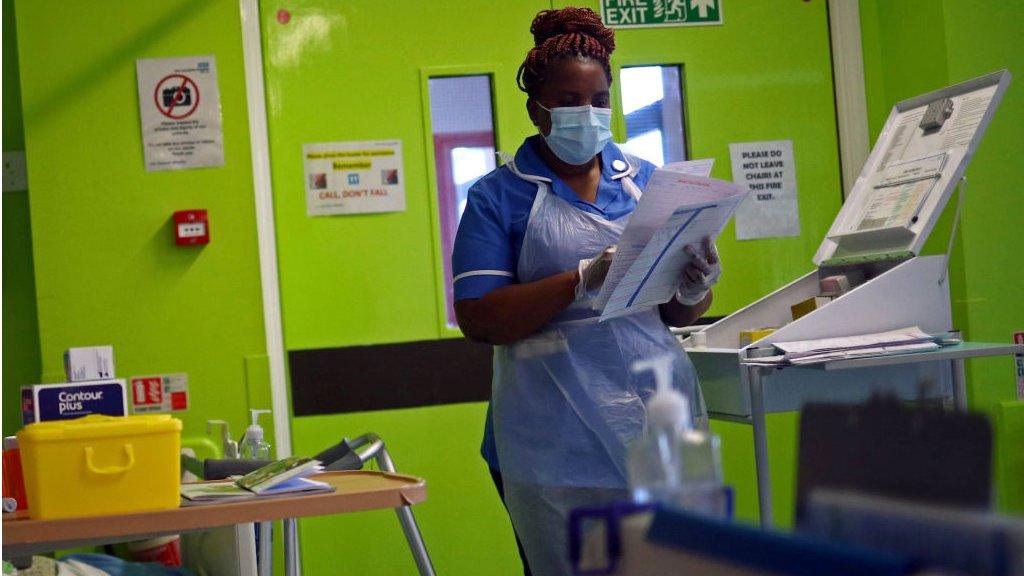
- Published22 June 2021
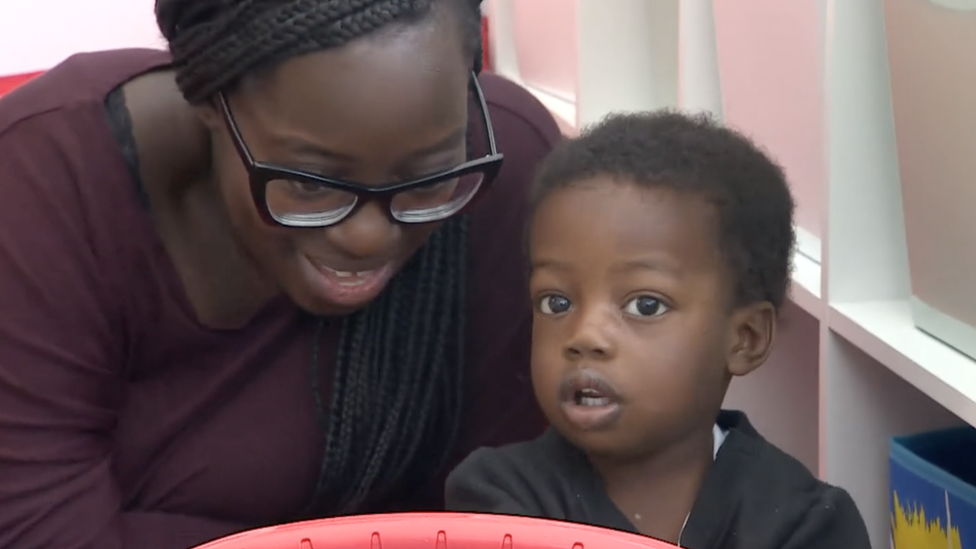
- Published15 February 2022
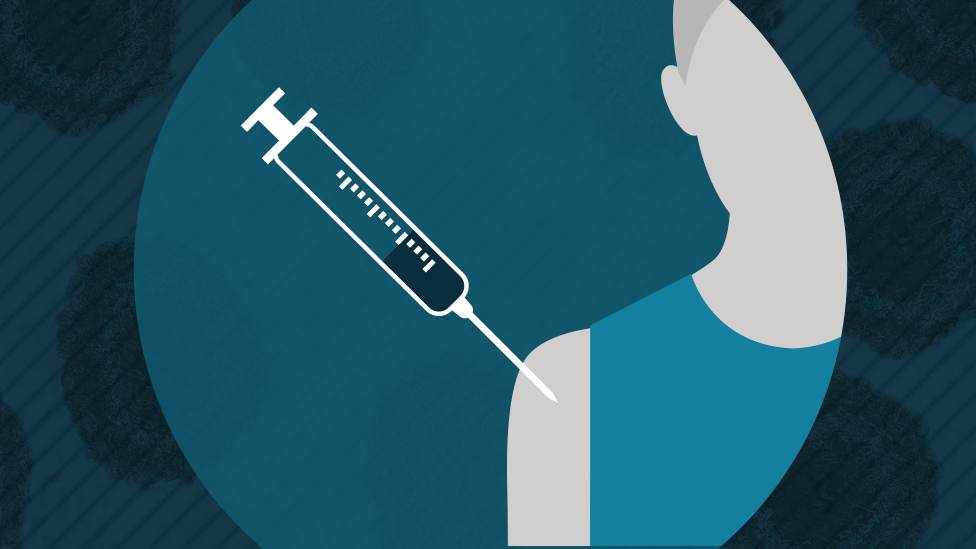
- Published17 November 2021
